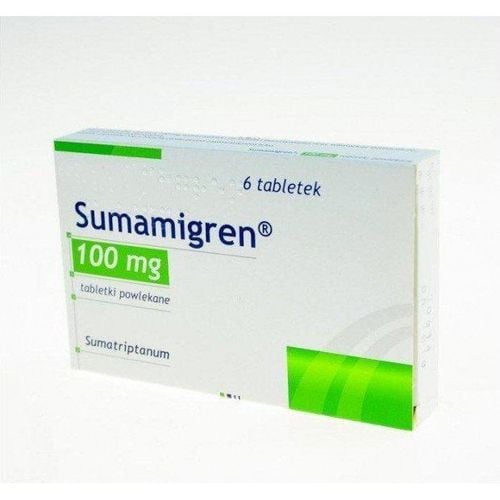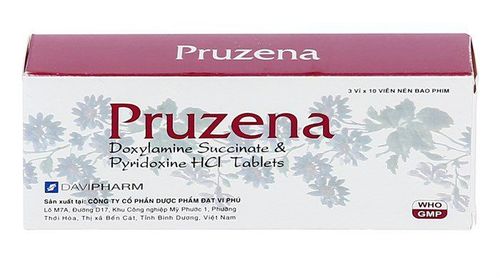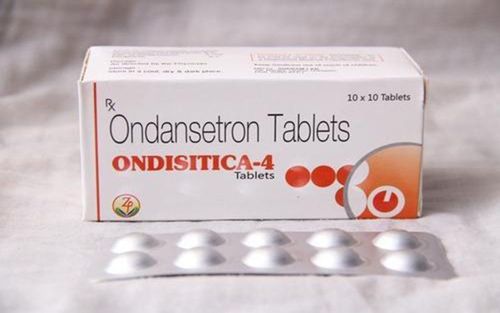This is an automatically translated article.
Nausea and vomiting are common symptoms that cause significant discomfort to the patient. There are many causes of nausea and vomiting such as: infection, eating stale food or motion sickness from travel. Antiemetics are a group of medications that help ease these symptoms. Antiemetics can be given after the patient begins to have symptoms, or they can be taken before for prevention.
1. What is an antiemetic?
Antiemetics are medicines used to treat or prevent nausea and vomiting. Antiemetics come in many forms including tablets or capsules, liquid, rectal suppositories, transdermal patches, and intramuscular or intravenous injection. Some antiemetics are available over-the-counter while others require a prescription.
2. How do antiemetics work?
There are many different biological processes that can lead to nausea and vomiting. Most involve the brain and intestines. Some are more active in the central nervous system or on the visceral nerves that control gastrointestinal (GI) activity.
Because antiemetic drugs are effective for certain cases, your doctor will check and prescribe you the right drugs for your current health condition.
3. What are antiemetics used for?
Common causes of nausea and vomiting include: motion sickness, gastroenteritis (stomach flu), migraines, intestinal obstruction, radiation therapy, opioid medications, chemotherapy, and anesthesia during surgery . Antiemetics also treat pregnancy-related nausea, such as morning sickness or nausea.
4. When should intravenous antiemetics be used?
Intravenous antiemetics are indicated in adults over 20 years of age and are used in common cases such as:
Relief of nausea and vomiting in migraine headaches, cancer treatment, childbirth and infectious diseases ; Control vomiting after surgery; Help put the tube into the intestine. When used to treat children and young adults under 20 years of age, parenteral antiemetics should be restricted to the following conditions and used only as second-line therapy:
Treatment of severe vomiting not clear cause, or after chemotherapy or radiation therapy; Help put the tube into the intestine. The medicine may be used for the treatment of other conditions not mentioned above. However, this requires a prescription from a specialist.
5. Who can take antiemetics?
5.1. Infants, Children, and Adolescents Some antiemetics are safe and effective to use in pediatric patients. Dexamethasone has been studied and shown to be safe in children with chemotherapy-related nausea. Scopolamine patches are also widely used to relieve motion sickness and postoperative nausea and vomiting in children. Serotonin receptor antagonists such as ondansetron are safe and effective to treat nausea in children if the dosage is maintained below a certain threshold. Antihistamines other than promethazine are safe options to treat nausea in children. Promethazine is contraindicated in children under 2 years of age due to respiratory depression as a side effect. Dopamine receptor antagonists such as metoclopramide should generally be avoided, due to side effects such as tardive dyskinesia. They should not be used on children under 1 year of age and extreme caution must be exercised when used in older children. The neurokinin-1 inhibitors aprepitant and fosaprepitant are approved for use in children older than 6 months.
5.2. Adults Antiemetics are safe to use in adults. The most common side effects that result from the anticholinergic properties, include dry mouth, decreased urination, constipation, drowsiness, dizziness, and fatigue. It is important to consult your doctor about side effects so that they can be adjusted accordingly.
5.3. Older adults Most antiemetics can be used safely in the elderly, although side effects may be more obvious as the body gets rid of the drug less quickly with age. The anticholinergic side effects of many antiemetics should be closely monitored, as orthostatic hypotension, sedation, and fatigue may increase the risk of falls. Antiemetics do double as antipsychotics, such as prochlorperazine, which can contribute to cognitive impairment, sedation, and confusion, also increasing the risk of falls.
Best when using any antiemetic, you need to consult a doctor, pharmacist. This is not only safe for health but also highly effective in anti-vomiting.
Please dial HOTLINE for more information or register for an appointment HERE. Download MyVinmec app to make appointments faster and to manage your bookings easily.













